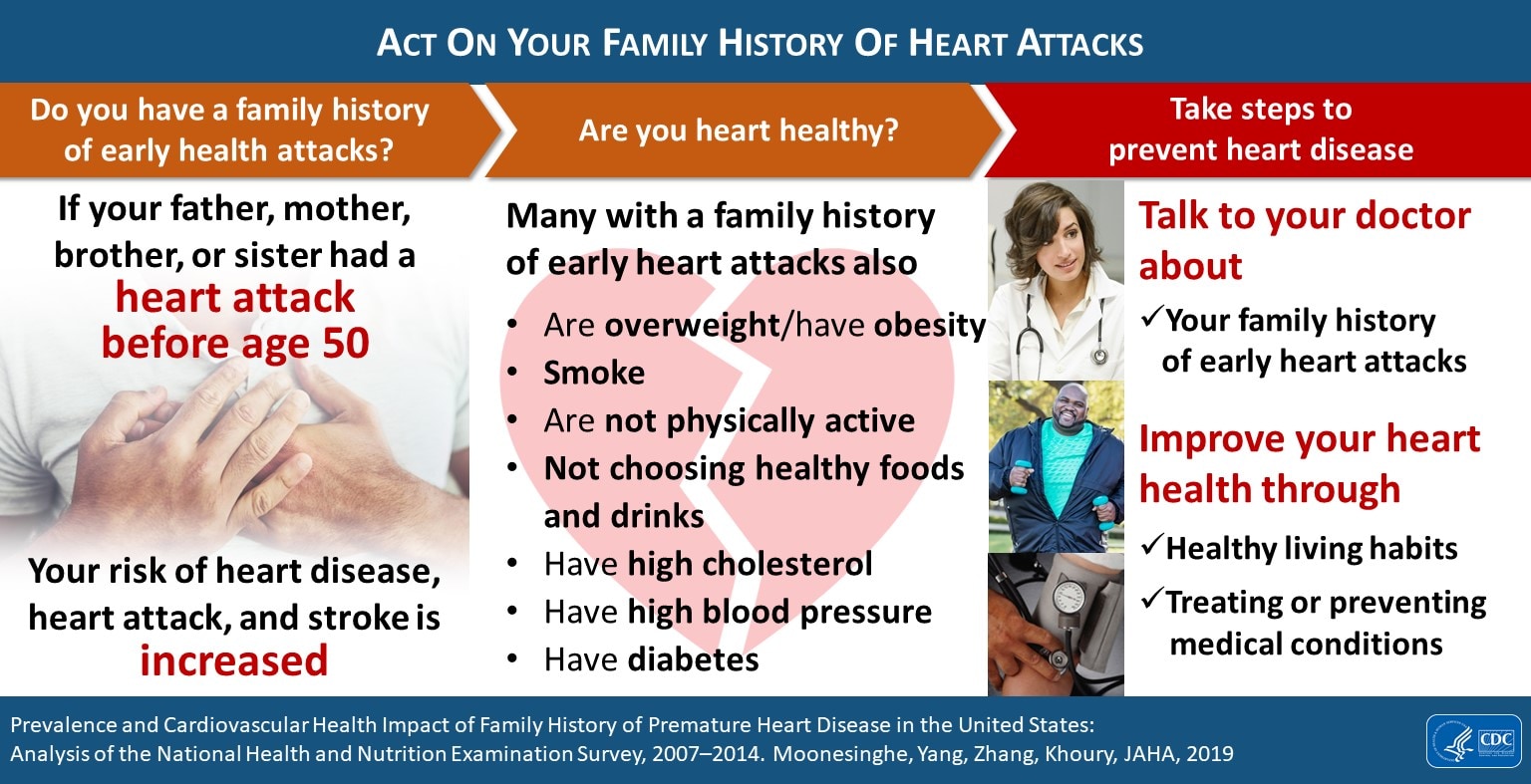Key points
- If you have a family health history of heart disease, you are more likely to develop heart disease yourself.
- Collect your family health history of heart disease and share this information with your healthcare provider and family members.
- Your healthcare provider can help you take steps to lower your chances of having heart disease.

Overview
Different types of heart disease and related conditions, such as high blood pressure and high blood cholesterol, can run in families. Knowing your family health history of heart disease and related conditions is one of the first steps you can take to prevent heart disease and heart attacks in the future.
People at increased risk
Tell your healthcare provider if your parents, sisters, brothers, children, grandparents, grandchildren, aunts, uncles, nieces, or nephews have or have had
- Coronary artery disease or atherosclerosis
- Heart attack
- High blood cholesterol
- Angina (pressure or squeezing pain in the chest)
- Arrhythmias, such as atrial fibrillation
- Cardiomyopathy
- Congenital heart defects
- Heart failure
- Other heart-related conditions
- Aortic aneurysm
- Stroke
- Diabetes
- High blood pressure
- Implantable cardioverter-defibrillator (ICD)
- Pacemaker
- Percutaneous coronary intervention (PCI) (also called coronary angioplasty) with or without stent
- Heart bypass or other heart surgery
Based on this information, your healthcare provider may suggest steps to prevent or treat heart disease. If you have been diagnosed with heart disease or related conditions, it is important to tell your family members.
Collecting your family health history
- Include your parents, sisters, brothers, children, grandparents, grandchildren, aunts, uncles, nieces, and nephews
- Make sure you include both your mother's and father's sides of the family
- Note which relatives have had heart disease, related conditions or procedures, and the age at which they were diagnosed or treated
- List the age and cause of death for relatives who have died
- Share your family health history with your healthcare provider and family members
- Update your family health history regularly and alert your healthcare provider to any new diagnosis, condition, or procedure
If you are concerned about your personal or family health history of heart disease, talk to your healthcare provider. If you need help getting started, you can use the My Family Health Portrait tool to collect and share your family health history information. If you or your family members have very high cholesterol levels or have had heart attacks or heart disease at a young age, you might have a family history of familial hypercholesterolemia.

